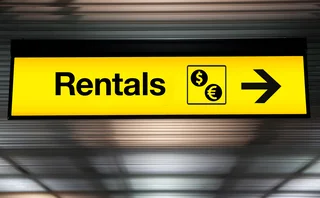
Algo sniffers make a tough business tougher
FX spot is already a hard game for many LPs, and the rise of skew sniping only makes things harder
Passive algorithms have been one of the big success stories in spot foreign exchange in recent years. In the low-volatility environment, and even during the Covid-induced vol spike last year, market participants have been keen to use the algos to place bids and offers on electronic venues that are skewed, or discounted, to encourage other market participants to take you out of the risk.
The benefit is that they allow the user to avoid having to pay a bid/offer spread to move the risk. The main drawback, though, has always been market risk – this approach takes longer to execute, so there’s more chance of an adverse market movement.
But in the past 18 months or so, another risk has emerged. When trading on anonymous platforms which bring all users together in once place, showing a skew can be a great flashing beacon to tech-savvy market participants that flow is coming that might move the market.
These firms quickly update their prices to match the skew, forcing the passive algo user to skew even further to attract the flow needed to take them out of the position. In essence, it forces them to buy higher and sell cheaper than they otherwise would have, making hedging more expensive and ultimately resulting in less profit for the LPs.
Algo teams at the large liquidity providers are trying to fight back by creating bespoke liquidity pools without these skew snipers in there. But working out exactly who is a fox in the henhouse is a challenge, so LPs – with the help of the platforms – are running all manner of tests to spot them and kick them out, to make sure their stream is safe to skew on.
These tests aren’t always perfect, though, and there’s a risk that some users get unfairly penalised for what they believe is legitimate trading behaviour.
Another downside, of course, is that if LPs whittle down their liquidity streams on these platforms only to those deemed “skew safe”, there are fewer potential counterparties to take them out of the risk. That means it takes longer to get out of positions, and therefore results in more exposure to market risk.
But as FX volatility heads back down towards its pre-Covid lows, that appears to be a risk worth taking – particularly as the resulting shrink in bid/offer spreads, fierce competition and ongoing technology costs make the business an increasingly difficult one to run for many LPs.
Only users who have a paid subscription or are part of a corporate subscription are able to print or copy content.
To access these options, along with all other subscription benefits, please contact customer services - www.fx-markets.com/static/contact-us, or view our subscription options here: https://subscriptions.fx-markets.com/subscribe
You are currently unable to print this content. Please contact customer services - www.fx-markets.com/static/contact-us to find out more.
You are currently unable to copy this content. Please contact info@fx-markets.com to find out more.
Copyright Infopro Digital Limited. All rights reserved.
As outlined in our terms and conditions, https://www.infopro-digital.com/terms-and-conditions/subscriptions/ (point 2.4), printing is limited to a single copy.
If you would like to purchase additional rights please email info@fx-markets.com
Copyright Infopro Digital Limited. All rights reserved.
You may share this content using our article tools. As outlined in our terms and conditions, https://www.infopro-digital.com/terms-and-conditions/subscriptions/ (clause 2.4), an Authorised User may only make one copy of the materials for their own personal use. You must also comply with the restrictions in clause 2.5.
If you would like to purchase additional rights please email info@fx-markets.com
More on Our take
FX traders revel in March Madness
Chaotic Trump policies finally bring diversity to flows – to the delight of market-makers
Could LPs explore renting out their client franchise?
Connecting regional banks with sophisticated clients may see dealers evolve to become liquidity distribution hubs
Higher rates see corporates reassess FX structured products
Treasurers are getting a taste for dual currency notes and structured forwards
Quants dive into FX fixing windows debate
Longer fixing windows benefit clients, but predicting how dealers will respond is tough
Low FX vol regime fuels exotics expansion
Interest is growing in the products as a way to squeeze juice out of a flat market
BofA quants propose new model for when to hold, when to sell
Closed-form formula helps market-makers optimise exit strategies
FX forwards dealers face added challenges in P&L analysis
Mark-out tools for forwards and swaps trading may not be a panacea
What T+1 risk? Dealers shake off FX concerns
Predictions of increased settlement risk and later-in-the-day trading have yet to materialise








